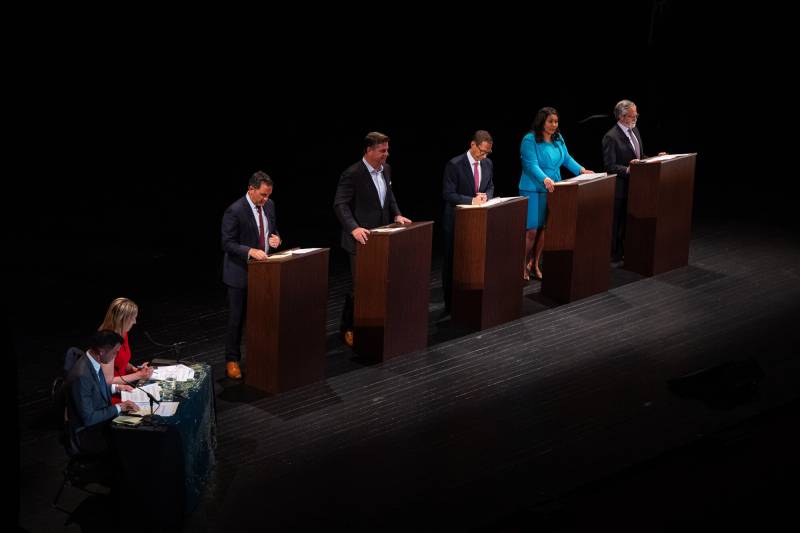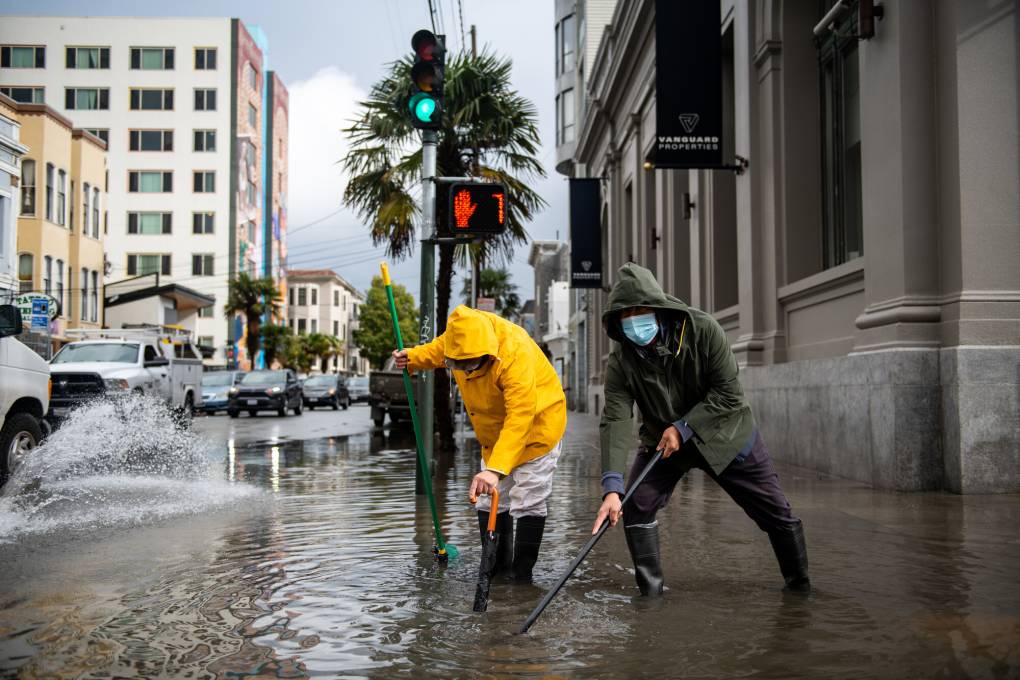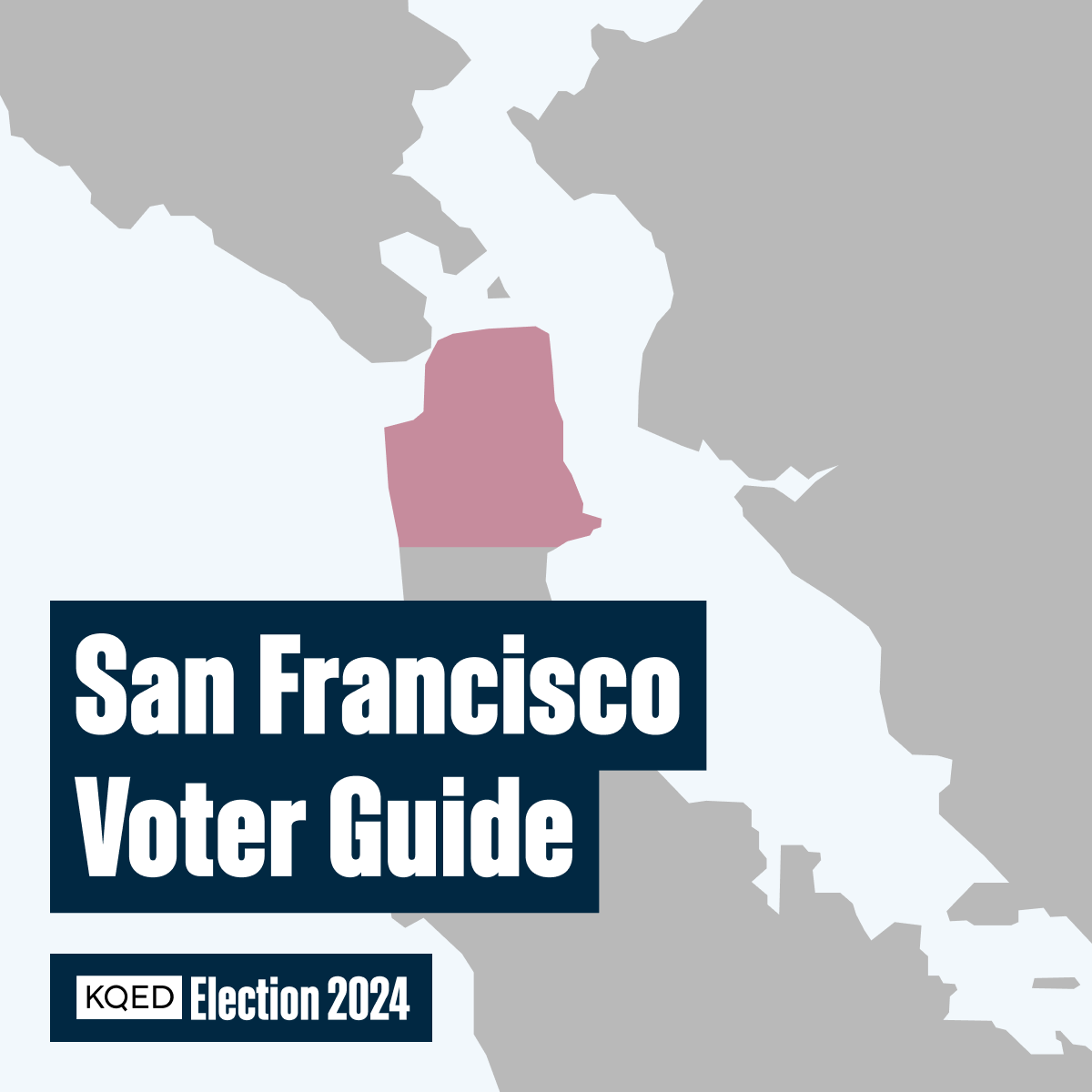“All of these issues are key, but if you don’t put climate at the center of your agenda and you’re trying to be the mayor of a major U.S. city, you are simply rearranging deck chairs on the Titanic,” he said.
By publicly focusing very little on their climate policies, most candidates, including Mayor Breed, missed a pivotal moment to convince voters that they care about the city’s future in a warming world, Kammen said.
“I don’t think there’s any excuse not to make this a lead story except that politics is all about the whac-a-mole story,” he said. “Climate is a simmering crisis, and with the recent heat wave, it’s literally and figuratively a simmering crisis.”
‘Real room for the candidates to differ’
The five leading candidates in the race — Mayor London Breed, former Mayor Mark Farrell, Supervisor Aaron Peskin, Supervisor Ahsha Safaí and nonprofit founder Daniel Lurie — told KQED climate change is an integral part of their campaigns. Lurie is the only candidate who lists climate change as a priority on his website and said, “It’s a shame” that none of his opponents have done so.
Lurie has centered much of his candidacy around issues of housing and homelessness, but he told KQED that “you can walk and chew gum at the same time. And we need to address crime and homelessness and protect our residents from both current and future climate threats.”
The candidates agree that whoever voters elect as mayor must lead the city in preparing for sea-level rise, protecting vulnerable populations from floodwaters and extreme heat. Read more about each of the candidates’ positions here.
Breed’s opponents have all found common ground in attacking the incumbent mayor, arguing she has not done enough to protect San Franciscans from the climate effects — especially flooding — that impact a large swath of the city.
“We need a mayor who is mature enough to take all of that into account rather than blindly going down one path at the expense of not considering all of the impacts that good science is already telling us about,” Peskin said.
Breed dismissed these criticisms and pointed to her creation of several clear climate policies. In 2021, she released the city’s climate action plan outlining 174 measures to achieve net-zero emissions by 2040. Her Environment Department secured more than $45.8 million in mostly grant funding for climate initiatives to reduce emissions from city buildings, energy efficiency programs and food waste. She said her recreation and park department planted more than 1,500 trees over the past year, and Breed helped establish a study with the Port of San Francisco researching how to reinvent 7.5 miles of the bayshore for rising seas.
But some of her opponents, such as Farrell, don’t think Breed has taken climate issues like “flooding seriously,” and that’s “symptomatic of the underlying issues at City Hall” under her leadership.
“It doesn’t appear to be a priority, planning for future extreme weather events,” Farrell said. “There has been talk, but no action on day-to-day climate issues that we can handle in San Francisco and that can make a difference in our residents’ lives.”
In early 2023, back-to-back atmospheric rivers flooded parts of the city. Extreme rainfall caused localized flooding, inundated streets and soaked homes and businesses. Storms regularly cause millions of gallons of wastewater to flow into the streets and the bay, an issue that has the city siding with fossil fuel and other industry groups against the federal EPA in hugely consequential litigation currently before the Supreme Court.



